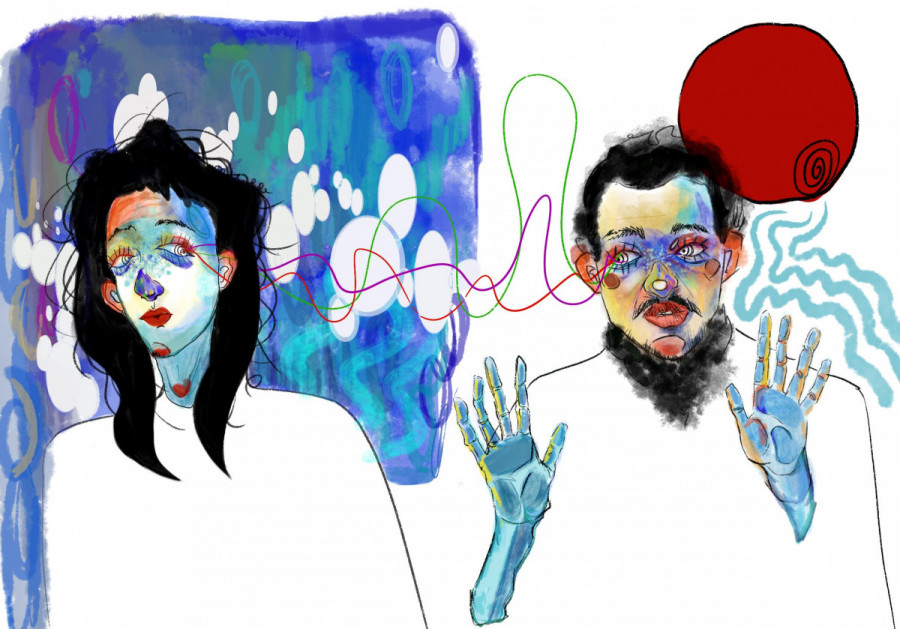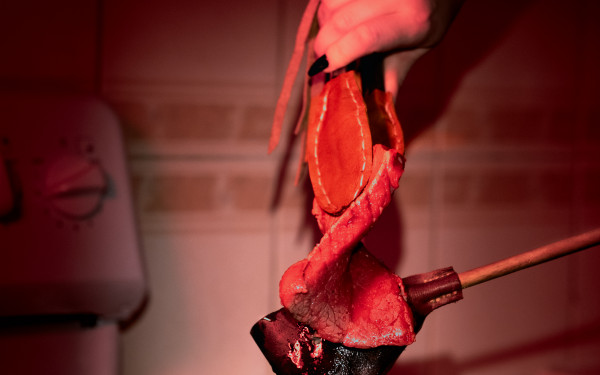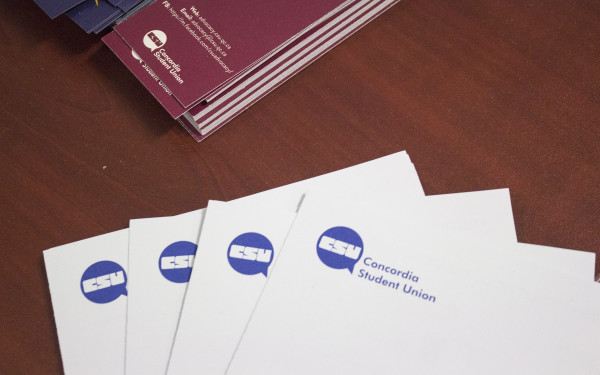Reflecting on a Decade: Interview With Oliver Leon Porter
Trans Joy, Detransitioning, Harry Potter and “Nightmarish Politics in The US”
Ten years ago almost to the day, Oliver Leon Porter wrote down their pre- and post-top surgery memories in their second-to-last column article for The Link, specifying that it was for him to re-read ten years later.
Porter had been updating his column, called ‘That Transsexual Guy,’ for over two years—even being nominated in two categories of the John H. McDonald Award for Excellence in Student Journalism; winning in the category of Opinion Writing in 2013.
They agreed to a Q&A with his former newspaper to talk about trans joy, detransition, politics, Harry Potter and whether society’s view of trans people has changed since 2013.
Answers have been edited for clarity.
What have you been up to since writing your last column article for The Link?
Many things. I graduated from the creative writing program at Concordia, then I was like, ‘oh, fuck, I need to find a job.’ But I had a mental breakdown first. And that took a while. [As] I was recovering, I needed work because creative writing wasn't the most practical thing I could do with my life. Because I did have a BA, I was able to qualify to teach English as a second language, so I got a certificate doing that. I taught ESL for six years, and now, I'm doing a master's degree at McGill in education. Oh! And I had a hysterectomy like three months ago, ten years [after top surgery.]
How has your understanding of your own gender and pronouns evolved over the years?
When I had my mental breakdown, I actually detransitioned for like three months, which I don't usually talk about.
I think it's important to talk about [detransitioning]. Not enough people are comfortable talking about that kind of thing. So I did detransition for three months, largely because I was not in a healthy state of mind. [I was] really suffering.
I stopped taking hormones because needles are very stressful, right? I just don't like them, so I thought, ‘Oh, no, does this mean I want to be a woman?’ I tried for three months [to be one], and my mom panicked and helped me buy girls' clothes and everything.
I even tried working at a warehouse as a woman. After two or three months of that, I was like, ‘This kind of sucks, I like being Oliver.’ So I went back to being Oliver. Everyone at the warehouse was like, ‘Yeah, you make sense as a dude,’ which I thought was very sweet.
I still enjoy wearing skirts and dresses sometimes—it’s just comfortable. It's fun. Like, why not? My middle ground now is that I wear kilts. Not in this weather, but I find that I'm not harassed as much. Rather than people yelling ‘faggot’ at me from their cars, I get people yelling ’nice kilt,’ which is weird but nice, I guess?
One of your column posts was a letter to your 17-year-old self, written when you were 22. If you could write a letter to your 22-year-old self, what would it say?
‘Go get medical help. And you don’t have to hide it. Go to therapy, get some help.’ Other than that? ‘Chill out. People will come around eventually.’
It took my parents a while to figure out the pronoun and name thing. And we had a few disagreements. I was very hard on them. I was going through a lot at the time, but so were my parents. My parents were divorcing, so I think I was a little too tough on them sometimes.
When exactly did you first come out as trans?
I believe I came out to myself in 2010. In 2011, in my last semester at Dawson College, I came out to my profs, and they were really supportive. I hold fond memories of them. When I arrived at Concordia, I presented [myself] as Oliver immediately. And that went really well.
How did people take your coming out in the sociopolitical climate of the time?
I had mostly supportive friends, but I did have one ‘friend’ who thought I was a confused lesbian and [another who] just didn't believe me, so we broke our friendship[s]. On the whole, the people around me were pretty good. My parents [and] family needed a bit of time.
Because I looked fairly androgynous, a lot of strangers or passersby couldn't place my gender, and I would get rude questions on the metro.
Even right before I started my transition officially, you could argue I looked kind of butch—I would stand in line in the women's bathroom and people would be like, ‘Sir, you're in the wrong bathroom.’ In the end, it proved to be safer to go to the men's bathroom, which was not something I was expecting.
It was still at this point where trans people were getting more and more momentum. So I kind of felt like I was riding the wave of that publicity, I think people still are today.
I remember getting in touch with different vendors and interviewing different people. I had an interview with [local spoken word poet] Kai Cheng Thom, [another with] Gabrielle Bouchard, [the trans advocate at the] Centre for Gender Advocacy [at the time].
How has society’s view of trans people changed since you’ve come out?
Has it changed? I did internships through McGill, [where] I met trans youth, and I'm not 100 per cent convinced that things have gotten better. Because young people face a lot of transphobia from their classmates, a lot of ignorance, and often their parents don't accept their gender. So I don't think it's any easier for the youth today, unfortunately. Yes, we have more information, so that's good—a young person can go on YouTube and watch transition videos.
[But society’s view of trans people] has gotten worse in certain ways with the rise of the far-right and the terrible shitshow that is US politics. Can I talk about Harry Potter?
Yes, please do! You wrote in your first column article that you were a huge Harry Potter fan. Reading this in 2023, I thought ‘Well, that did not age well.’
Yeah, hashtag regrets. I still have a Harry Potter tattoo [that] I should probably get covered up. But it's just a weird, conflicted position because Harry Potter was a huge part of my youth and reading Harry Potter fanfiction helped me find my queerness. Now, I guess I'm banning Harry Potter from my life.
What do you think about the argument that we should separate the art from the artist?
I mean, [J.K. Rowling is] still alive. [She’s] clearly antisemitic, racist, transphobic. Yeah, it's fucked. I'm so sad about that. I think when you lose something from your childhood, there's a bit of grief and there should be room for that. [People say] ‘J.K. Rowling's the worst! We should cancel her forever!’ But I think when letting go of things that are foundational to your identity, you're allowed to be sad about it.
Do you think access to gender-affirming care has improved to a satisfactory degree since you started your transition?
I mean, my hysterectomy was free, which is nice. And The Union for Gender Empowerment, a small queer org [at McGill, provides] gender gear [on a Pay What You Can basis].
In terms of young people, I think it's tricky because they need parental permission to access hormones or surgery. It's a very complicated, conflicting issue right now with people using scare tactics [asking], ‘What does it mean to give young teens access to hormones?’ [Or saying,] ‘They can't have surgery at the age of 14!’ And all this shit.
I do think Canada has done pretty well in giving access to trans people. As far as I know, the surgery guidelines have been updated.
With transgender awareness and visibility becoming more prevalent in society in parallel with an alarming number of anti-trans legislation being proposed worldwide—especially in countries once deemed safe for trans people, such as the USA and the UK—do you feel as though we are currently in a period of progress or in a period of regress in terms of trans rights?
It’s kind of both.
There’s more awareness—we’re much more in the media now, we can see trans actors on TV; trans musicians. In terms of the arts, it often will feel like there is progress being made; we can also see queer couples on TV.
But at the same time, if we look at the nightmarish politics in the US, a lot of rights are being taken away—and in the UK as well. So I lean more towards regression.
Why do you think there is this pushback against the trans liberation movements?
That's a really tough question. I think that conservatives are afraid of changing gender roles. They're unwilling to see any possible benefit of transness. I think people are probably scared, probably angry. And I think, especially if you look at J.K. Rowling, people are scared of their own rights being taken away.
There's some kind of fundamental misunderstanding of what it means to be trans. Couldn't quite pinpoint what that fundamental misunderstanding is. But I think there is one, and maybe [it’s] a fear of looking at your own complicity in gender roles and what that means. And, you know, good old-fashioned hatred.
I wonder if it's also a distraction from other political issues like climate change. I think it's very easy to get caught up in the theatricality of politics rather than looking at the serious issues that are on the table.
What are some words of wisdom you would like to share with Concordia’s trans communities?
Preserve yourself, nurture yourself and your communities. You know, don't leave anyone behind. And sometimes, dress up and make yourself fancy! It helps you feel good.







